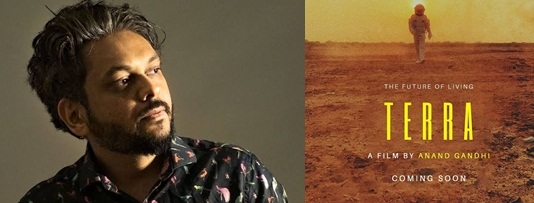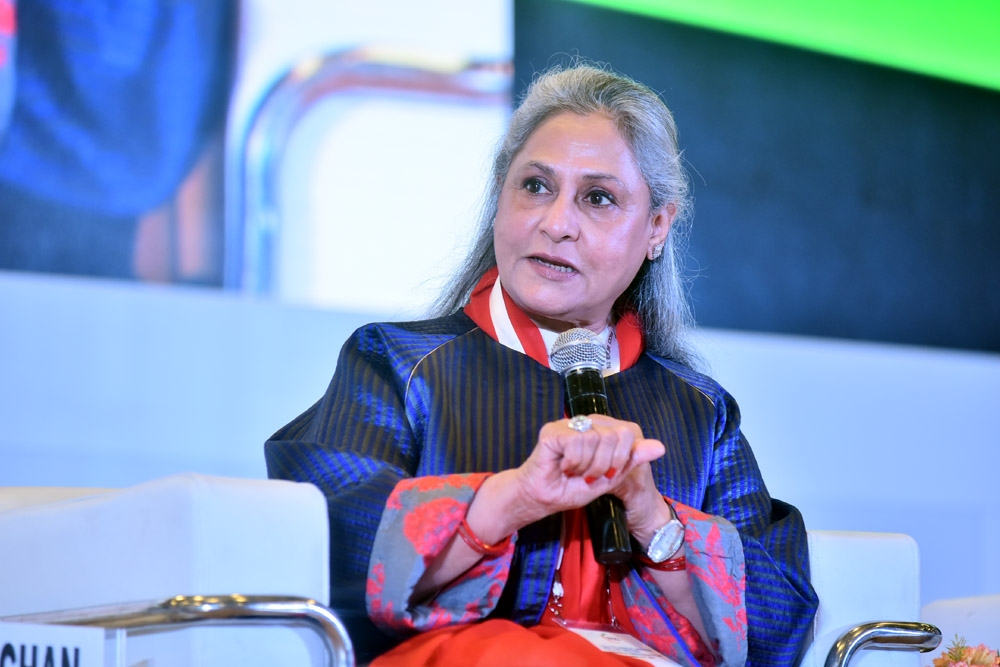Gandhi, who was also the creative director of ‘Tumbbad’ (2018), another festival favourite feels the big questions of the self and the universe do not need the speculative romance of philosophy and science has caught up and answered most philosophical or “spiritual” questions of his youth…writes Sukant Deepak
When he dropped out of school early, he was convinced that he wanted to be a magician. He even wanted to be a philosopher and a scientist. Cinema has allowed filmmaker Anand Gandhi to stay close to all his childhood dreams.
Believing magic and cinema are cognitive gyms as both achieve wonder by simulating experiences that are greater than the sum of their parts — whether by pulling a rabbit out of a hat or by telling a story of siblings separated at birth…
“We are seduced into studying the parts and interactions that this new whole emerged from. We are compelled to understand the cogs and gears behind the collapse of a marriage in a story or the engineering behind a bullet catch by a magician. Improbable phenomena witnessed firsthand challenge our notions of reality. Wonder then becomes an invitation to engage with paradoxes. The path of wonder may not always lead to answers, but often broadens our consciousness. That is the overlapping function of magic and cinema,” he tells.
The filmmaker and co-writer of ‘Ship of Theseus’ (2012) which made audiences and critics across the world sit up, who recently put up on Instagram a storyboard driven by AI for his sci-fi film ‘Emergence’, says looking back at his life, including the decision to drop out of college early, was a choice informed by his immediate needs and context.
“I wanted to get to know the region I was born in better and didn’t want to leave the country for education. The education that I had access to in Mumbai was insufficient for my intellectual curiosity and capacity. The only choice I was left with was to create my own bespoke journey of learning. Today, I am grateful that the 16-year-old me had the opportunity to leave college in search of a more meaningful education and follow it with rigor and responsibility.”
Gandhi, who was also the creative director of ‘Tumbbad’ (2018), another festival favourite feels the big questions of the self and the universe do not need the speculative romance of philosophy and science has caught up and answered most philosophical or “spiritual” questions of his youth.
“The purpose of philosophy now is to simulate potential human futures and propose social and moral contracts that will get us there. To that purpose, I find the work of Peter Singer very relevant. Besides learning about decision systems and possible directions for democracies and DAOs, I spend most of my time reading breakthroughs in cognitive biology,” he adds.
Though his next film ‘Emergence’ is about the pandemic, he started work on it way back in 2015. In fact, he had started thinking about it while making ‘Tumbbad’.
“I had hinted at the Spanish flu in one of the early drafts of ‘Tumbbad’ (which was how I justified the desolate Indian landscapes to myself). After finishing the shoot in 2015, I went back to a brilliant book I had read about making ‘Ship of Theseus’. That was Dennis Bray’s ‘Wetware’. I had become obsessed with the question of the emergence of consciousness. Does it evolve at the level of the mammalian brain or does it exist at the level of the cell, or even before (in quantum nanotubes as suggested by Penrose)? A setting emerged in my mind: One where I can juxtapose all these ideas together. A pandemic where the smallest form of consciousness, that is a virus, interacts with the most complex form that we are aware of, that is the human mind.”
Stressing that his process is about constantly searching for metaphors and analogies that can help him transmit his hopes, warnings, and insights, he says, “Once I find an allegory that seems to stick, I spend a lot of time making it coherent and immersive.”
This filmmaker who admires directors like Roy Andersson, Michael Haneke, Bela Tarr, Emir Kusturica, and Stanley Kubrick, says he cannot even imagine where AI-based visualisation is going to take us.
“It’s to help us record our memories with unprecedented fidelity, transmit our interiority with incredible accuracy, imagine futures, recreate pasts, dream up solutions in space travel and protein folding. We are living through a leapfrogging event in humanity.”

For someone whose writing credits also include ‘Kyunki Saas Bhi Kabhi Bahu Thi’, he says he was young and used training wheels at the time.
“I was learning to ride. It was a wonderful experience to work with Ekta and Rajubhai. I have always been grateful.”
He also feels that while the OTT space in India is still primitive, but will leapfrog very soon.
“A new generation of execs will soon replace the old guard and a golden era of cultural excellence will emerge — or at least, this is what I keep telling myself.”
ALSO READ-OTT releases to watch with family














